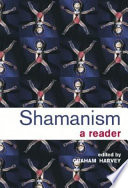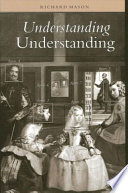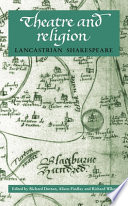 They say, miracles are past ; and we have our philosophical persons, to make modern and familiar things supernatural and causeless. Hence it is, that we make trifles of terrors ; ensconcing ourselves into seeming knowledge, when •we should submit ourselves... They say, miracles are past ; and we have our philosophical persons, to make modern and familiar things supernatural and causeless. Hence it is, that we make trifles of terrors ; ensconcing ourselves into seeming knowledge, when •we should submit ourselves...  Littell's Living Age - Page 3511897Full view Littell's Living Age - Page 3511897Full view - About this book
 | G. Wilson Knight - 2002 - 396 pages
...king's reluctance. The healing is performed. The play's comment runs: They say miracles are past; and we have our philosophical persons to make modern and...familiar things supernatural and causeless. Hence is it that we make trifles of terrors, ensconcing ourselves into seeming knowledge, when we should... | |
 | Graham Harvey - 2003 - 482 pages
...us all. Old Lafew in All's Well that Ends Well saw the predicament: They say miracles are past; and we have our philosophical persons, to make modern...familiar, things supernatural and causeless. Hence is it that we make trifles of terrors, ensconcing ourselves into seeming knowledge, when we should... | |
 | Stanley Wells - 2003 - 434 pages
...by all the essays: 'They say miracles are past; and we have our philosophical persons to make modem and familiar, things supernatural and causeless. Hence...when we should submit ourselves to an unknown fear.' Berger is not one who flies for the refuge of seeming knowledge; his work continually returns to the... | |
 | Catherine M. S. Alexander - 488 pages
...course' of the play's swift onward movement the strength of 'the tides that bear men with them'. Thus 'we make trifles of terrors, ensconcing ourselves...when we should submit ourselves to an unknown fear'. The assault on Bradley by Levin Schiicking and Edgar Elmer Stoll was much more radical. Both can be... | |
 | Richard Mason - 2003 - 152 pages
...understanding to linguistic understanding leads to these traps. Lafew: They say miracles are past, and we have our philosophical persons, to make modern...familiar, things supernatural and causeless. Hence is it that we make trifles of terrors, ensconcing ourselves into seeming knowledge, when we should... | |
 | Nicholas Royle - 2003 - 358 pages
...173), to an example from All's Well That Ends Well. Lafeu declares: 'They say miracles are past, and we have our philosophical persons to make modern and familiar things supernatural and causeless' (2.3.i-3). The Norton editors gloss this as meaning that philosophical persons 'make supernatural things,... | |
 | Richard Dutton, Alison Gail Findlay, Richard Wilson - 2003 - 286 pages
...oft-cited comment in All's Well critiques such wholesale demystification: 'They say miracles are past, and we have our philosophical persons to make modern and familiar things supernatural and causeless' (2.3.1-3). 8 1 One of the points of dispute between Protestantism and Catholicism, of course, was miracles:... | |
 | William Shakespeare - 2004 - 288 pages
...Lafew Enter Count BERTRAM, LAFEW [with a news-sheet], and PAROLLES 3? They say miracles are past, and we have our philosophical persons to make modern and...familiar things supernatural and causeless. Hence is it that we make trifles of terrors, ensconcing ourselves into seeming knowledge when we should submit... | |
 | Nils Gilman - 2003 - 358 pages
...questions are today once again relevant remains to be seen. From the European Past to the American Present We have our philosophical persons, to make modern and familiar, things supernatural and causeless. — ALL'S WELL THAT ENDS WELL It seems obvious that the past few hundred years have witnessed a portentous... | |
 | Lynda Hales - 2005 - 323 pages
...length of my life and the day of my death were fated long ago. Skirnir's Journey Ancient Norse Myth We make trifles of terrors, ensconcing ourselves into...when we should submit ourselves to an unknown fear. William Shakespeare Trotog ue ''[h Oslo, Norway, 1027 AD Norda smelled the dark dwarf's greed for ill-gotten... | |
| |